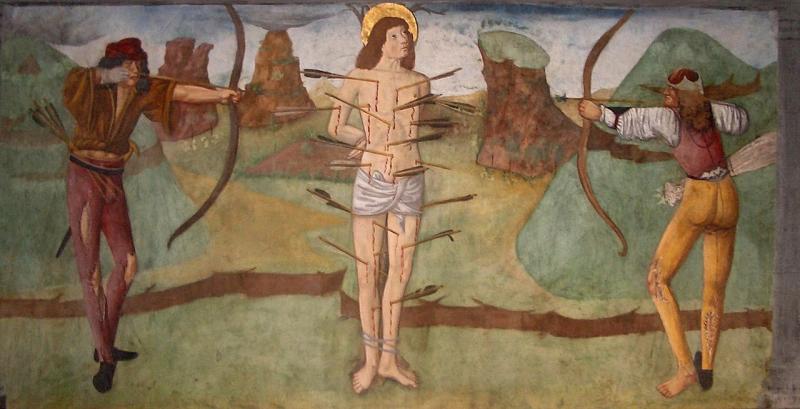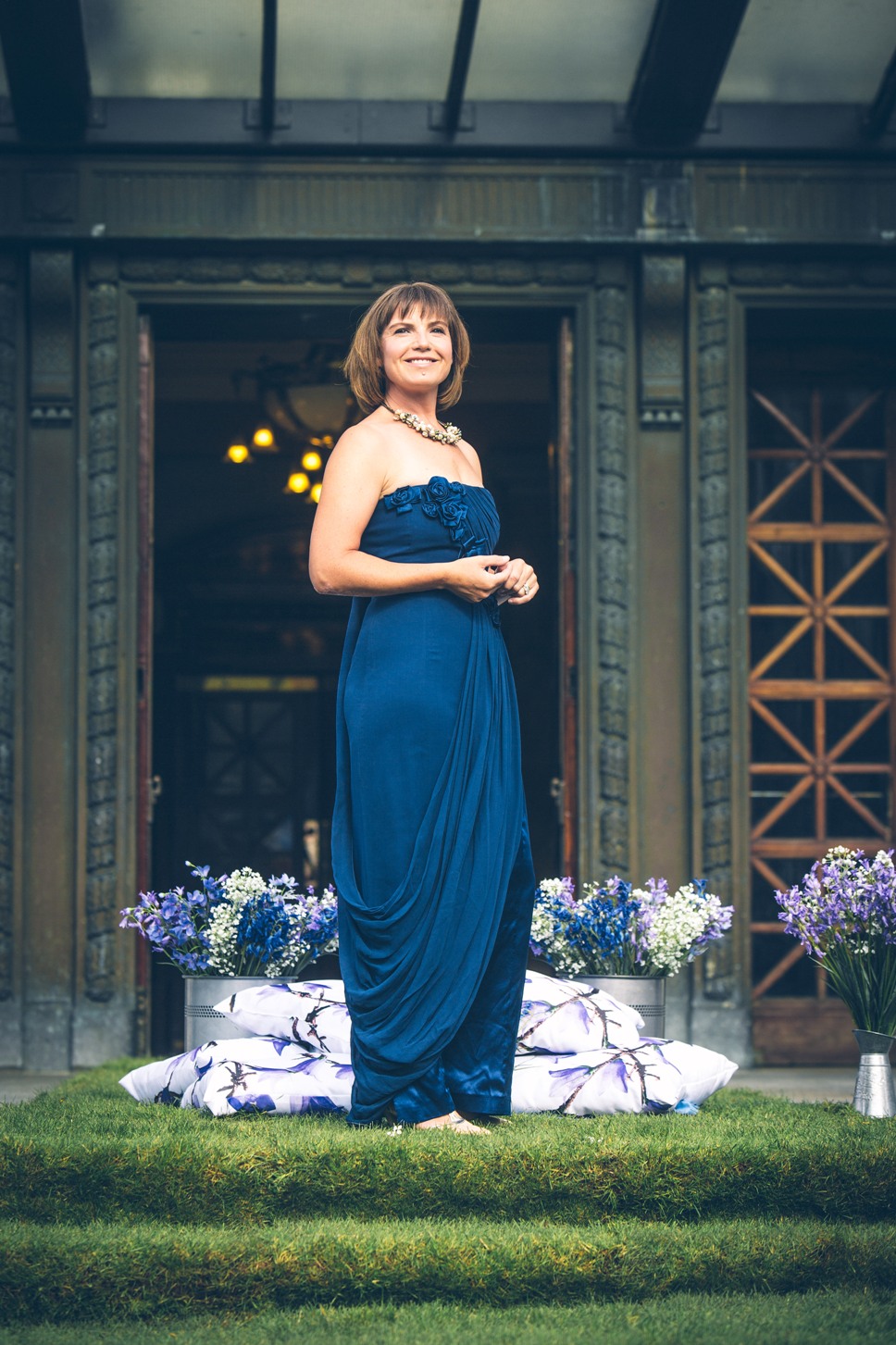Edinburgh International Festival Opening Concert, RSNO, Knussen, Usher Hall | reviews, news & interviews
Edinburgh International Festival Opening Concert, RSNO, Knussen, Usher Hall
Edinburgh International Festival Opening Concert, RSNO, Knussen, Usher Hall
Debussy, Schoenberg and Scriabin induce only mild ennui in an unfestive launch

On paper this was an interesting programme. The Edinburgh Festival traditionally opens with a major choral work, but while the international audience would probably be happy with endlessly recycled requiems and masses, festival directors have often felt obliged to venture into more challenging territory.
On their own these two works would have meant a short programme so length, if not weight, was added by Schoenberg’s Five Orchestral Pieces, early works that peer cautiously at the atonal future from within a post-Mahlerian chromaticism (they were actually composed a year before Mahler died, and first performed by Sir Henry Wood at the 1912 Proms, believe it or not). This performance by the Royal Scottish National Orchestra under Oliver Knussen (pictured below at last year's Proms by Chris Christodoulou) was precise, measured, but ultimately lacking in incisiveness. Granted, music as flighty and insubstantial as this is unlikely to pin you to your seat, but the RSNO players, normally so committed, seemed disengaged.

Despite its preoccupation with Scriabin’s “mystical chord” (A, D sharp, G, C sharp, F sharp, B), Prometheus is propelled by a clear thematic device that gradually builds in intensity, but this was a performance where the notes were left to fend for themselves. This could work with master-orchestrators such as Mahler or Strauss but Scriabin fumbles with his lavish orchestral forces, including an impressive array of percussion, and needs more help from conductor and players to add spirit to the opulence.
 Debussy’s Le Martyre de Saint Sébastien is billed as an oratorio but is in fact a bit of a contrivance, being the incidental music plucked from a five act mystery play by Gabriele d’Annunzio (more often performed are the Fragments Symphoniques made up of music taken from the full score.) Without the play, or even the narration that precedes each of the five acts or “maisons”, the resulting collage of solos and choruses is distinctly on the dotty side of mystical, with words such as “women unfasten your girdles! From dark Hades, the abode of souls, He has come back to us, the blessed one” more likely to produce a snort of derision than fellow feeling.
Debussy’s Le Martyre de Saint Sébastien is billed as an oratorio but is in fact a bit of a contrivance, being the incidental music plucked from a five act mystery play by Gabriele d’Annunzio (more often performed are the Fragments Symphoniques made up of music taken from the full score.) Without the play, or even the narration that precedes each of the five acts or “maisons”, the resulting collage of solos and choruses is distinctly on the dotty side of mystical, with words such as “women unfasten your girdles! From dark Hades, the abode of souls, He has come back to us, the blessed one” more likely to produce a snort of derision than fellow feeling.
An orchestra stripped of Scriabin’s excesses produced a sound of greater clarity and finesse than before the interval. As the principal soloist Claire Booth (pictured outside the Usher Hall by Clark James) floated a sinuous vocal line with an authentically piquant French timbre. With more to get their teeth into, different bits of the chorus were up and down like ninepins and coped well with Debussy’s diaphanous harmonies. But ultimately this is a somewhat unapproachable work so if you were seeking the “wow” factor on the first night of one of the greatest festivals in Europe then such a strange programme could only be rather a disappointment.
rating
Share this article
The future of Arts Journalism
You can stop theartsdesk.com closing!
We urgently need financing to survive. Our fundraising drive has thus far raised £49,000 but we need to reach £100,000 or we will be forced to close. Please contribute here: https://gofund.me/c3f6033d
And if you can forward this information to anyone who might assist, we’d be grateful.

Subscribe to theartsdesk.com
Thank you for continuing to read our work on theartsdesk.com. For unlimited access to every article in its entirety, including our archive of more than 15,000 pieces, we're asking for £5 per month or £40 per year. We feel it's a very good deal, and hope you do too.
To take a subscription now simply click here.
And if you're looking for that extra gift for a friend or family member, why not treat them to a theartsdesk.com gift subscription?
more Classical music
 Lammermuir Festival 2025, Part 2 review - from the soaringly sublime to the zoologically ridiculous
Bigger than ever, and the quality remains astonishingly high
Lammermuir Festival 2025, Part 2 review - from the soaringly sublime to the zoologically ridiculous
Bigger than ever, and the quality remains astonishingly high
 BBC Proms: Ehnes, Sinfonia of London, Wilson review - aspects of love
Sensuous Ravel, and bittersweet Bernstein, on an amorous evening
BBC Proms: Ehnes, Sinfonia of London, Wilson review - aspects of love
Sensuous Ravel, and bittersweet Bernstein, on an amorous evening
 Presteigne Festival 2025 review - new music is centre stage in the Welsh Marches
Music by 30 living composers, with Eleanor Alberga topping the bill
Presteigne Festival 2025 review - new music is centre stage in the Welsh Marches
Music by 30 living composers, with Eleanor Alberga topping the bill
 Lammermuir Festival 2025 review - music with soul from the heart of East Lothian
Baroque splendour, and chamber-ensemble drama, amid history-haunted lands
Lammermuir Festival 2025 review - music with soul from the heart of East Lothian
Baroque splendour, and chamber-ensemble drama, amid history-haunted lands
 BBC Proms: Steinbacher, RPO, Petrenko / Sternath, BBCSO, Oramo review - double-bill mixed bag
Young pianist shines in Grieg but Bliss’s portentous cantata disappoints
BBC Proms: Steinbacher, RPO, Petrenko / Sternath, BBCSO, Oramo review - double-bill mixed bag
Young pianist shines in Grieg but Bliss’s portentous cantata disappoints
 theartsdesk at the Lahti Sibelius Festival - early epics by the Finnish master in context
Finnish heroes meet their Austro-German counterparts in breathtaking interpretations
theartsdesk at the Lahti Sibelius Festival - early epics by the Finnish master in context
Finnish heroes meet their Austro-German counterparts in breathtaking interpretations
 Classical CDs: Sleigh rides, pancakes and cigars
Two big boxes, plus new music for brass and a pair of clarinet concertos
Classical CDs: Sleigh rides, pancakes and cigars
Two big boxes, plus new music for brass and a pair of clarinet concertos
 Waley-Cohen, Manchester Camerata, Pether, Whitworth Art Gallery, Manchester review - premiere of no ordinary violin concerto
Images of maternal care inspired by Hepworth and played in a gallery setting
Waley-Cohen, Manchester Camerata, Pether, Whitworth Art Gallery, Manchester review - premiere of no ordinary violin concerto
Images of maternal care inspired by Hepworth and played in a gallery setting
 BBC Proms: Barruk, Norwegian Chamber Orchestra, Kuusisto review - vague incantations, precise laments
First-half mix of Sámi songs and string things falters, but Shostakovich scours the soul
BBC Proms: Barruk, Norwegian Chamber Orchestra, Kuusisto review - vague incantations, precise laments
First-half mix of Sámi songs and string things falters, but Shostakovich scours the soul
 BBC Proms: Alexander’s Feast, Irish Baroque Orchestra, Whelan review - rapturous Handel fills the space
Pure joy, with a touch of introspection, from a great ensemble and three superb soloists
BBC Proms: Alexander’s Feast, Irish Baroque Orchestra, Whelan review - rapturous Handel fills the space
Pure joy, with a touch of introspection, from a great ensemble and three superb soloists
 BBC Proms: Moore, LSO, Bancroft review - the freshness of morning wind and brass
English concert band music...and an outlier
BBC Proms: Moore, LSO, Bancroft review - the freshness of morning wind and brass
English concert band music...and an outlier
 Willis-Sørensen, Ukrainian Freedom Orchestra, Wilson, Cadogan Hall review - romantic resilience
Passion, and polish, from Kyiv's musical warriors
Willis-Sørensen, Ukrainian Freedom Orchestra, Wilson, Cadogan Hall review - romantic resilience
Passion, and polish, from Kyiv's musical warriors

Add comment